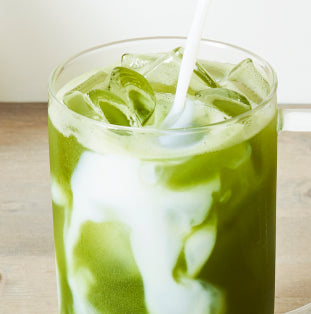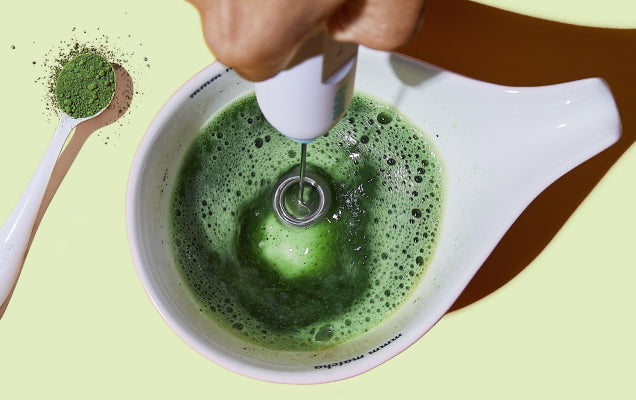
intro to matcha
Matcha is a tea powder made from finely ground green tea leaves that go through a unique process. The plants are shaded then carefully deveined and ground to produce matcha. Instead of infusing the leaves, the powder is easily whisked into a cloud of frothy goodness. Loved for its benefits and versatility, this powerhouse go-to is known to calm the mind and energize the body. So, get ready to sip some good green.
What are the health benefits of matcha?
Matcha is hailed for its antioxidant effects along with its energizing, detoxifying and natural metabolism-boosting properties. Because it’s a powdered tea, you’re actually ingesting all the benefits of the full leaf.
longhaul energy
Matcha contains less caffeine than your average cup of coffee but provides a more sustained energy release because of the way your body metabolizes it. No spike, no crash. Just smooth sailing.status set to focus
L-theanine boosts concentration while caffeine keeps you alert. This power combo helps increase focus and productivity while also giving you energy. In fact, Japanese monks have been drinking matcha during their long periods of meditation for over 800 years.chill factor
Because of its unique method of production, matcha has a higher concentration of L-theanine, an amino acid found in tea that helps keep you cool, calm and collected.feel-good dynamo
Matcha also helps get your metabolism running while pumping your body with antioxidants. It’s the perfect way to kickstart your daily wellness routine. With each sip, you’re getting every last bit of nutrients, like calcium, potassium and iron.How is matcha different than green tea?
Matcha, like all tea leaves, comes from the Camellia sinensis plant. It starts with shading tea plants 2-4 weeks before plucking, which increases the caffeine and L-theanine levels in the tea leaves. The leaves are then steamed, dried, deveined and carefully ground to a fine green powder.How do I store matcha?
The best way to store matcha is in a cool, dry and dark environment away from sunlight or anything with a strong aroma, including spices and incense. Make sure it’s stored in a well-sealed container or bag!What matcha tools do I need to make matcha?
Matcha is traditionally prepared with a Matcha Bowl and Whisk, a ritualized process that promotes mindfulness. For others, using more modern, on-the-go accessories, like our Matcha Maker or Handheld Frother, is preferable. To make sure you get the perfect cup every time, we recommend using our Perfect Matcha Spoon to measure your matcha.Can I use metal tools with matcha?
Traditionally only wood, bamboo and ceramic tools are used to prepare matcha. However, stainless steel is also a popular option. Contrary to popular belief, this material doesn’t affect the taste of matcha. Because we value inclusivitea in all its forms, we offer a variety of different materials and leave the choice completely up to you!Is matcha hard to make?
Making matcha is easy as 1-2-tea ! Just measure, add warm water, whisk and sip! Fun fact: there’s no need to wait for the tea leaves to steep.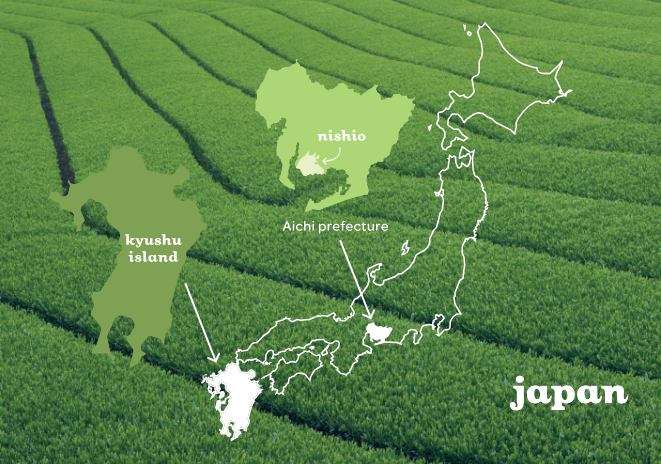
Origin
Our matcha is sourced from Nishio and Kyushu Island in Japan. Nishio, located in the Aichi prefecture, is recognized as one of the world’s best matcha producers for over 800 years. Kyushu Island is famous for its rich volcanic soil, which is a terroir that produces tea leaves with complex flavour.
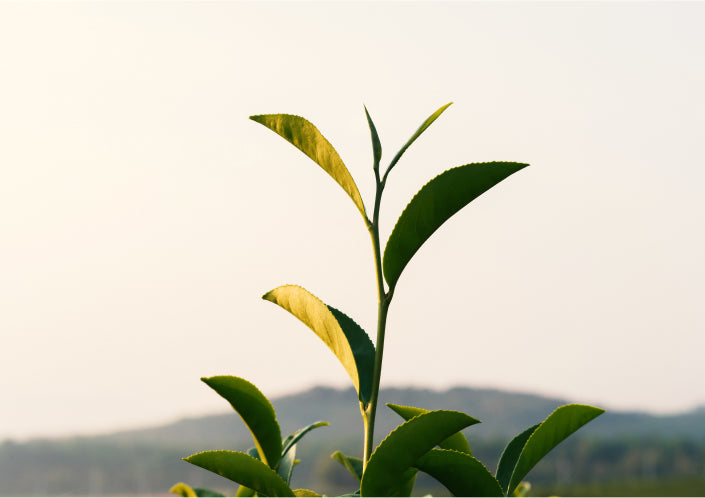
Quality
Higher quality, ceremonial grades deliver a distinct umami taste and smooth mouthfeel. These qualities are both affected by the terroir as well as the technique and expertise of those growing and processing the leaves. Before the leaves are harvested, the tea plants are shaded in the field for up to 4 weeks. Due to a lack of sunlight, the plant increases its production of chlorophyll andL-theanine. Chlorophyll gives matcha its refreshing and vegetal flavour, whileL-theanineis an amino acid responsible for producing its famed umami taste.
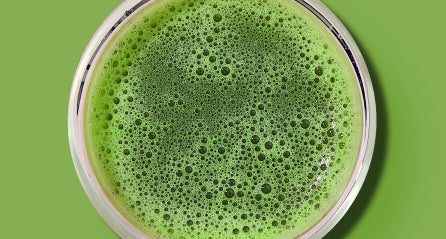
Organic
Our organic matchas are sourced from a Certified Organic tea garden. They follow strict environmental growing processes, which extend from how the tea plants are handled to how the matcha is stored. By offering organic, we’re furthering our commitment to more eco-friendly farming practices.
Education
Caffeine in Matcha
Caffeine is a naturally occurring compound found in many plants, including tea leaves, coffee and chocolate. It stimulates the nervous system and increases alertness and performance. The level of caffeine found in our matcha ranges from low to medium.
Matcha vs Coffee
Matcha contains less caffeine than your average cup of coffee but is gradually absorbed in the body, providing a more sustained energy release.
Matcha made easy
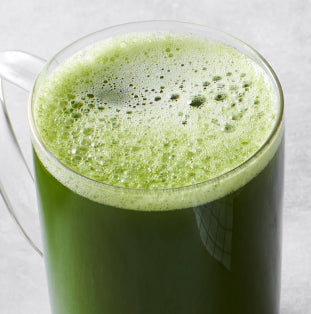
how to: Simple Matcha
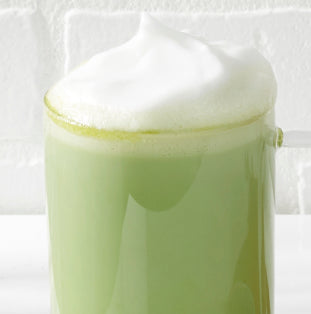
how to: Matcha Latte
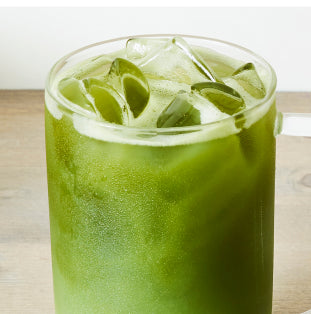
how to: Iced Matcha
